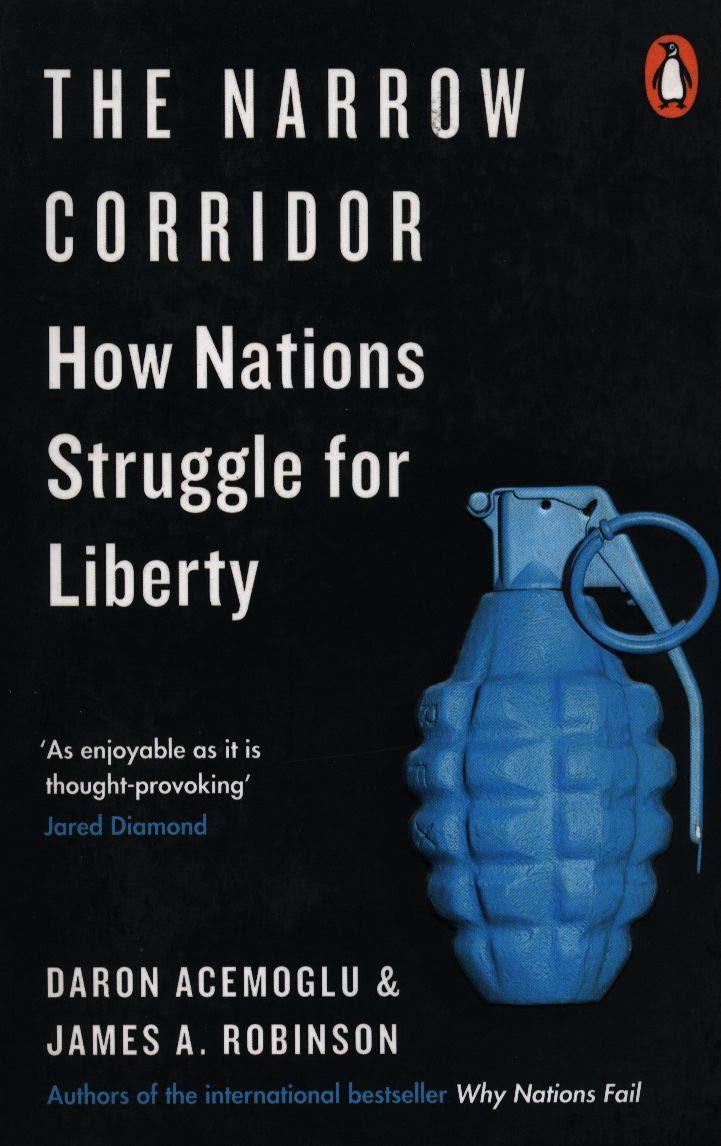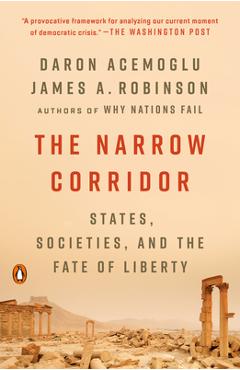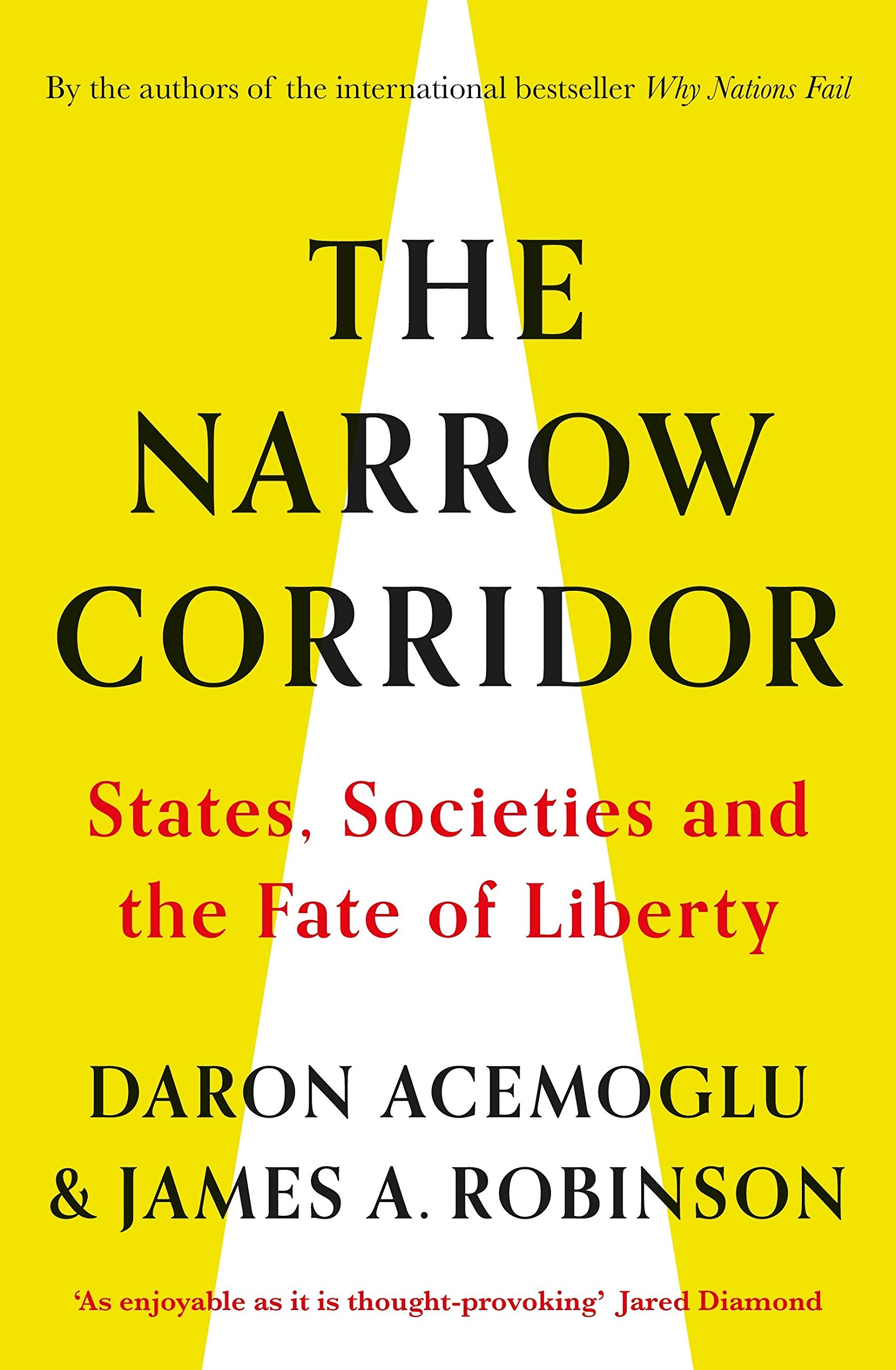The Narrow Corridor | Daron Acemoglu, James A. Robinson

Detalii The Narrow Corridor | Daron
carturesti.ro
79 Lei
Carte straina
Penguin Books Ltd
The Narrow Corridor | Daron - Disponibil la carturesti.ro
Pe YEO găsești The Narrow Corridor | Daron de la Penguin Books Ltd, în categoria Carte straina.
Indiferent de nevoile tale, The Narrow Corridor | Daron Acemoglu, James A. Robinson din categoria Carte straina îți poate aduce un echilibru perfect între calitate și preț, cu avantaje practice și moderne.
Caracteristici și Avantaje ale produsului The Narrow Corridor | Daron
- Departament: gaming-carti-birotica
- Ideal pentru pasionații de jocuri, birotică și distracție online.
Preț: 79 Lei
Caracteristicile produsului The Narrow Corridor | Daron
- Brand: Penguin Books Ltd
- Categoria: Carte straina
- Magazin: carturesti.ro
- Ultima actualizare: 27-10-2025 01:24:43
Comandă The Narrow Corridor | Daron Online, Simplu și Rapid
Prin intermediul platformei YEO, poți comanda The Narrow Corridor | Daron de la carturesti.ro rapid și în siguranță. Bucură-te de o experiență de cumpărături online optimizată și descoperă cele mai bune oferte actualizate constant.
Descriere magazin:
By the authors of the international bestseller Why Nations Fail, based on decades of research, this powerful new big-picture framework explains how some countries develop towards and provide liberty while others fall to despotism, anarchy or asphyxiating norms - and explains how liberty can thrive despite new threats.Liberty is hardly the \'natural\' order of things; usually states have been either too weak to protect individuals or too strong for people to protect themselves from despotism. There is also a happy Western myth that where liberty exists, it\'s a steady state, arrived at by \'enlightenment\'. But liberty emerges only when a delicate and incessant balance is struck between state and society - between elites and citizens. This struggle becomes self-reinforcing, inducing both state and society to develop a richer array of capacities, thus affecting the peacefulness of societies, the success of economies and how people experience their daily lives.Explaining this new framework through compelling stories from around the world, in history and from today - and through a single diagram on which the development of any state can be plotted - this masterpiece helps us understand the past and present, and analyse the future.\'In this highly original and gratifying fresco, Daron Acemoglu and Jim Robinson take us on a journey through civilizations, time and locations. Their narrow corridor depicts the constant and often unstable struggle of society to keep the Leviathan in check and of the Leviathan to weaken the cage of norms. A remarkable achievement that only they could pull off and that seems destined to repeat the stellar performance of Why Nations Fail\' Jean Tirole, Nobel Laureate in Economics, 2014\'Another outstanding, insightful book by Acemoglu and Robinson on the importance and difficulty of getting and maintaining a successful democratic state. Packed with examples and analysis, it is a pleasure to read\' Peter Diamond, Nobel Laureate in Economics, 2010\'The Narrow Corridor takes us on a fascinating journey, across continents and through human history, to discover the critical ingredient of liberty. It finds that it\'s up to each of us: that ingredient is our own commitments, as citizens, to support democratic values. In these times, there can be no more important message - nor any more important book\' George Akerlof, Nobel Laureate in Economics, 2001\'How should we view the current challenges facing our democracies? This brilliant, timely book offers a simple, powerful framework for assessing alternative forms of social governance. The analysis is a reminder that it takes vigilance to maintain a proper balance between the state and society - to stay in the \'narrow corridor\' - and avoid falling either into statelessness or dictatorship\' Bengt Holmstrom, Nobel Laureate in Economics, 2016

Produse asemănătoare

The Narrow Corridor: States, Societies, and the Fate of Liberty - Daron Acemoglu
![]() libris.ro
libris.ro
Actualizat in 28/10/2025
117.18 Lei

The Narrow Corridor | Daron Acemoglu, James A. Robinson
![]() carturesti.ro
carturesti.ro
Actualizat in 27/10/2025
79 Lei

The Narrow Corridor | Daron Acemoglu, James A. Robinson
![]() carturesti.ro
carturesti.ro
Actualizat in 27/10/2025
79 Lei

The Narrow Corridor: States, Societies, and the Fate of Liberty, Paperback/Daron Acemoglu
![]() elefant.ro
elefant.ro
Actualizat in 15/10/2025
129.99 Lei
Produse marca Penguin Books Ltd

Tom Clancy\'s Chain of Command, Paperback/Marc Cameron
![]() elefant.ro
elefant.ro
Actualizat in 28/10/2025
64.99 Lei

Permission to Speak. How to Change What Power Sounds Like, Starting With You, Paperback/Samara Bay
![]() elefant.ro
elefant.ro
Actualizat in 28/10/2025
122.99 Lei



